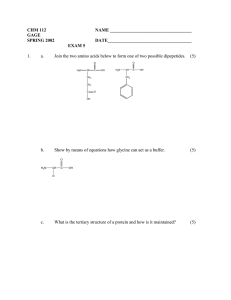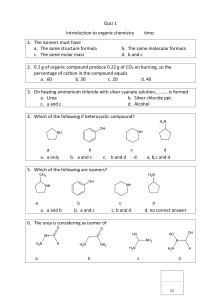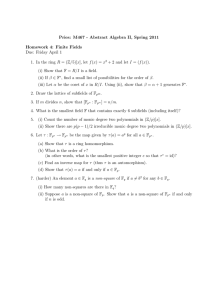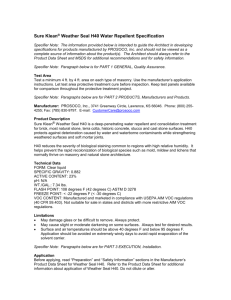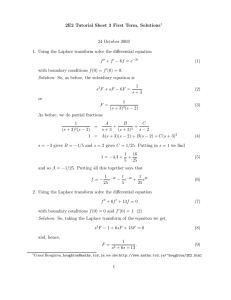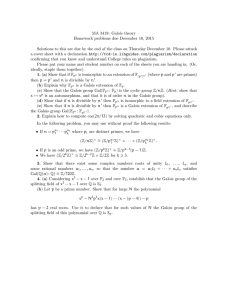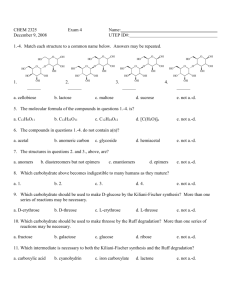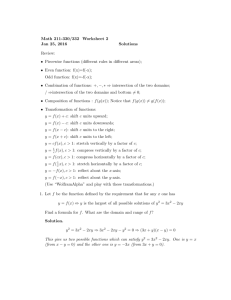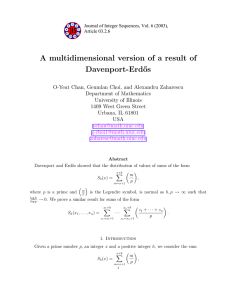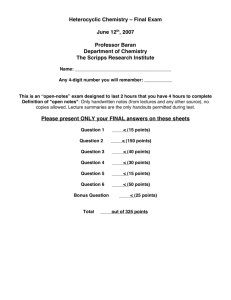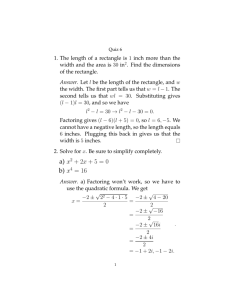Quiz #5 Answers February 26, 2015 Math 251.502
advertisement
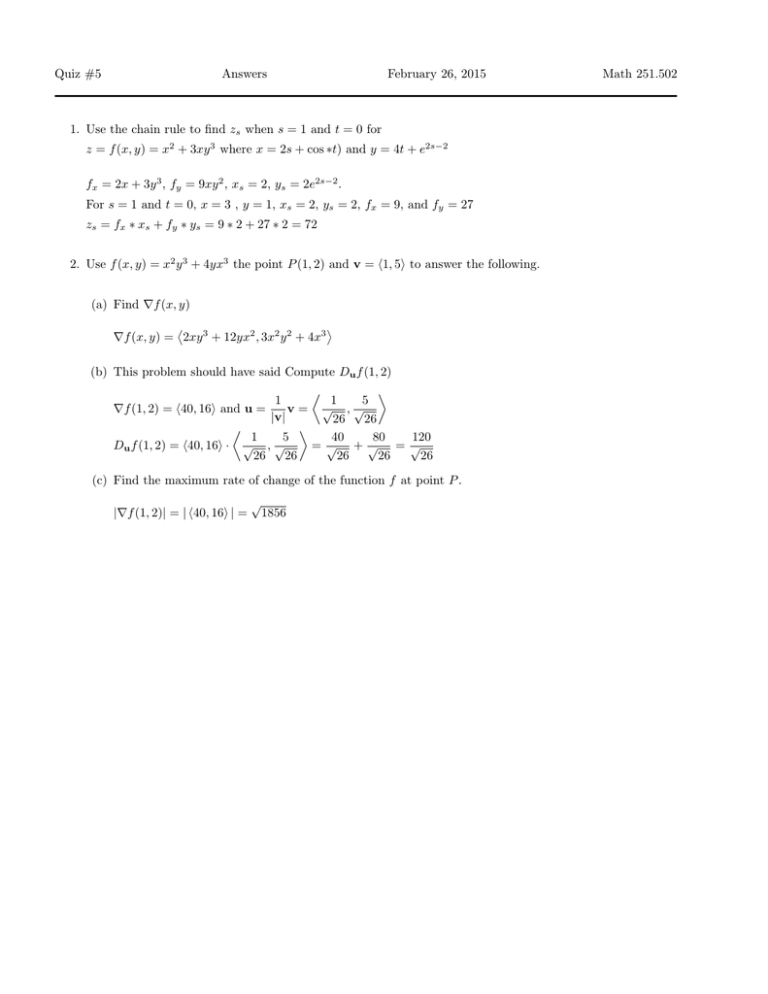
Quiz #5 Answers February 26, 2015 1. Use the chain rule to find zs when s = 1 and t = 0 for z = f (x, y) = x2 + 3xy 3 where x = 2s + cos ∗t) and y = 4t + e2s−2 fx = 2x + 3y 3 , fy = 9xy 2 , xs = 2, ys = 2e2s−2 . For s = 1 and t = 0, x = 3 , y = 1, xs = 2, ys = 2, fx = 9, and fy = 27 zs = fx ∗ xs + fy ∗ ys = 9 ∗ 2 + 27 ∗ 2 = 72 2. Use f (x, y) = x2 y 3 + 4yx3 the point P (1, 2) and v = h1, 5i to answer the following. (a) Find ∇f (x, y) ∇f (x, y) = 2xy 3 + 12yx2 , 3x2 y 2 + 4x3 (b) This problem should have said Compute Du f (1, 2) 1 5 1 v= √ ,√ ∇f (1, 2) = h40, 16i and u = |v| 26 26 5 40 80 120 1 =√ +√ =√ Du f (1, 2) = h40, 16i · √ , √ 26 26 26 26 26 (c) Find the maximum rate of change of the function f at point P . |∇f (1, 2)| = | h40, 16i | = √ 1856 Math 251.502
